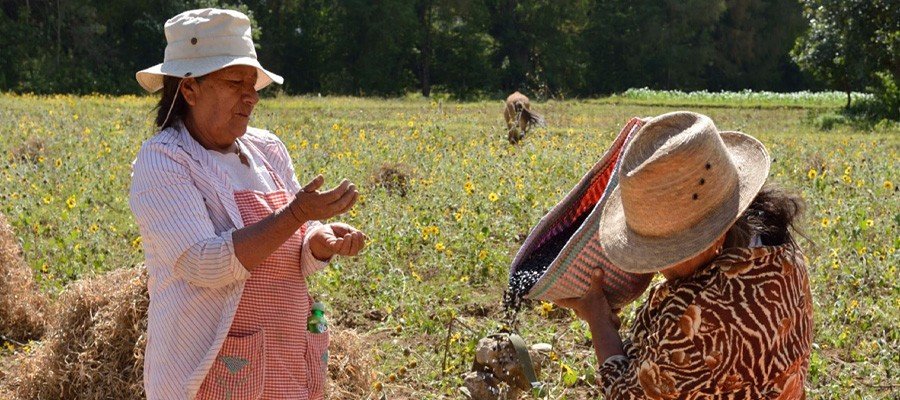The fourth meeting of the Technical and Scientific Advisory Group (GATEC) of the Platform on Climate Change, Risk and Resilience in UNESCO-designated sites in Latin America and the Caribbean (the CCRR-LAC Platform), which took place on March 29-31, was attended by key partners in the areas of climate change statistics, indigenous peoples’ action on climate change and a scientific program at the South American level. Officials from the Environmental Statistics Unit of the United Nations Economic Commission for Latin America and the Caribbean (ECLAC), the Fund for the Development of Indigenous Peoples of Latin America and the Caribbean (FILAC) and the French cooperation initiative and its South American counterparts, CLIMAT-AmSud, participated in dialogues with GATEC to define and agree on collaborations to be pursued in 2022 and possibly beyond.
Since last year, UNESCO’s CCRR-LAC Platform has been conducting a regional risk vulnerability and vulnerability assessment piloting of UNESCO’s designated sites in order to design a tool that supports climate change adaptation at the sites.
As part of this process, Francisco Jimenez Nava, consultant from ECLAC’s Environmental Statistics, Climate Change and Disasters Unit presented the new UN global set of climate change statistics that was adopted in March 2022 by the UN Statistical Commission. In addition, the exchange provided an opportunity to discuss the next steps of this new collaboration between ECLAC and UNESCO.
On day 2 of the meeting, they discussed how to make visible the important role that indigenous peoples have in managing the impact of climate change in a large part of UNESCO’s designated sites. In particular through a joint initiative between UNESCO and FILAC for participatory social mapping.
Gloria Apén, Director of the Indigenous Peoples and Local Communities Unit of the National Council of Protected Areas, Guatemala and member of GATEC,
«It is very important to see how indigenous peoples are affected by the impacts of climate change….I think that a social mapping of indigenous peoples should go beyond what communities they are, but a mapping that should include how those elements of biodiversity are used…and how climate change has been affecting livelihoods.»
In order to respond to this challenge, Mr. Gabriel Jujuy, FILAC’s Technical Secretary, participated in a dialogue with the GATEC of the CCRR-LAC Platform. FILAC and UNESCO agreed to move forward with an initiative based on an indigenous rights approach. This new initiative of UNESCO’s Program on Indigenous and Local Knowledge Systems (UNESCO LINKS Program) will start in the middle of 2022.
On Day 3, GATEC welcomed officials from the CLIMAT AmSud initiative. Julien Chauvet, the Regional Cooperation Attaché of the French Embassy in Chile and officials from the Chilean National Agency for Research and Development and the Representative of the CLIMAT AmSud Scientific Committee presented their regional scientific initiative on climate change and proposed collaborative activities throughout the year.
The work of the climate change, risk and resilience platform at UNESCO sites and under the leadership of GATEC continues to generate knowledge for UNESCO designated sites through collaborations with stakeholders in the region on climate change and its impacts.
The full sessions can be accessed on UNESCO Montevideo’s Youtube channel.



